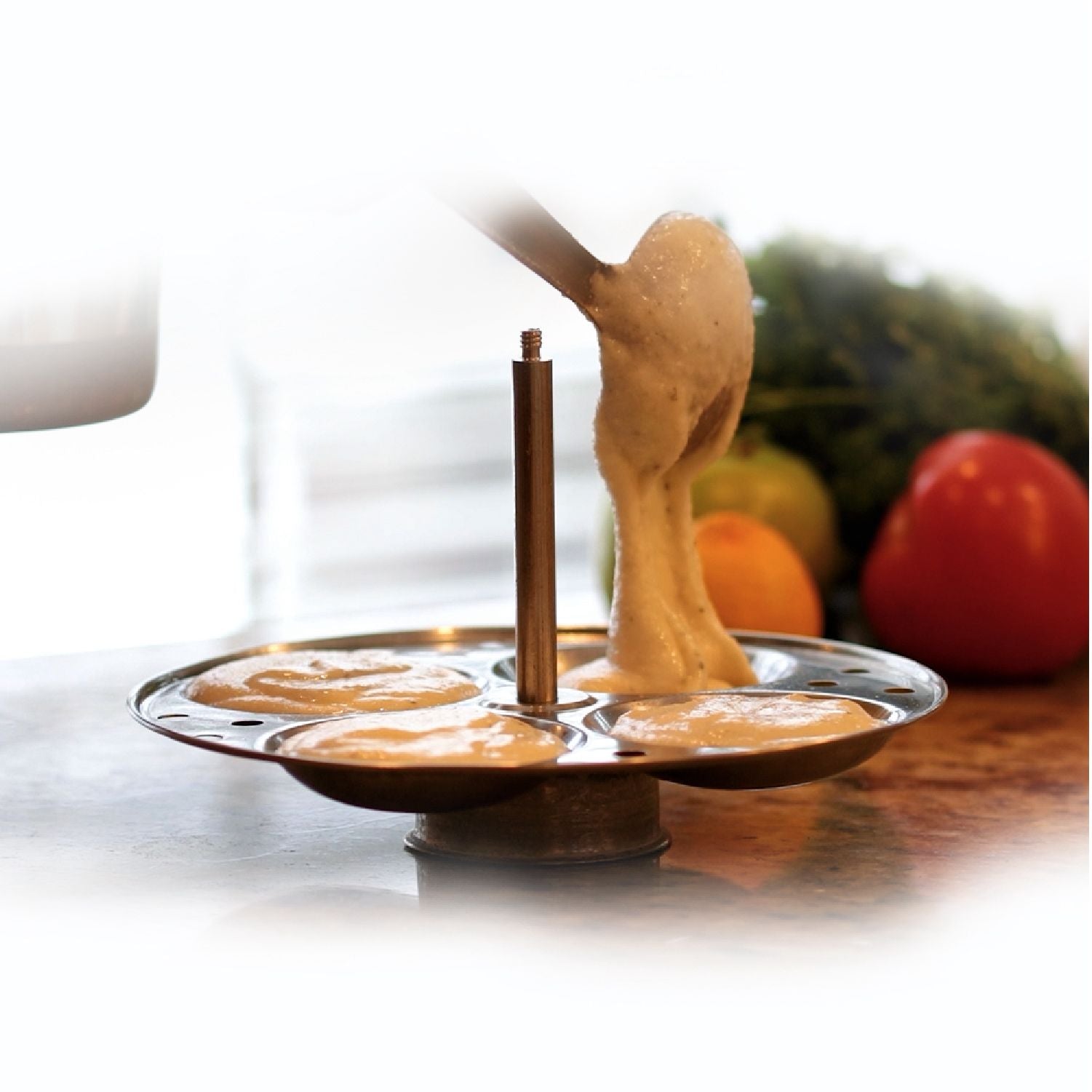Most people know that having too much cholesterol is bad for the heart, but not everyone really understands what cholesterol is. Cholesterol is like waxy fat in your blood.
When you have too much cholesterol, it can make fatty deposits in your blood vessels. These deposits can make it hard for blood to flow through your arteries.
However, you can lower high cholesterol by eating millet, which are small grains that might help bring down your cholesterol levels.
Confused about finding the best millet to add to your diet? Don't worry. You can get the best millet health mix from Millex, which is a trusted brand that delivers 100% natural products with no artificial colors or flavors.
With this health mix, you can reduce your cholesterol level and lead a healthy life. Now, let us explore how millet helps to manage cholesterol levels in heart patients.
Why Millet?
Millets are a type of cereal grain that belongs to the Poaceae family, sometimes known as the grass family. While it may resemble a seed, millet's nutritional profile is comparable to that of sorghum and other cereals.
Millets have acquired popularity in Western countries because they are gluten-free and contain a high protein, fiber, and antioxidant content.
Also millets are tasty, versatile, and nutrition-packed, exactly what is essential for a cholesterol-lowering diet. Millets contain soluble fiber, which forms a gel-like substance in your gut. Thus it help to traps fats and reduce cholesterol levels.
In one study with 24 rats, those fed foxtail and proso millet had significantly lower triglyceride levels compared to the control group. Additionally, millet protein might help lower cholesterol.
In another study, mice with type 2 diabetes were given a high-fat diet with millet protein concentrate. This resulted in lower triglyceride levels and higher levels of adiponectin and good cholesterol compared to the control group.
The Effect of High Cholesterol on Heart Health
When there is too much cholesterol in the blood, it can build up on the walls of the arteries, leading to a condition called atherosclerosis. This causes the arteries to narrow, slowing or blocking blood flow to the heart muscle.
Blood carries oxygen to the heart. If not enough blood and oxygen reach your heart, brain, or other organs, you may experience chest pain. If the blood supply is completely blocked to a part of the heart or brain, it can result in a heart attack or stroke.
There are two types of cholesterol: low-density lipoprotein (LDL) and high-density lipoprotein (HDL). LDL is often referred to as bad cholesterol, and it is the main source of plaque that clogs arteries.
HDL is known as good cholesterol. It helps remove cholesterol from the blood. Triglycerides are another type of fat. They are found in the bloodstream. High levels of triglycerides are now linked to an increased risk of heart disease.
Causes of High Cholesterol
Anyone can get high cholesterol. High cholesterol can be caused due to numerous reasons.
Things that cause high cholesterol and can be controlled:
Your Lifestyle:
- Consuming too much-saturated fat could affect the liver's ability to eliminate cholesterol, causing it to accumulate in the bloodstream.
- Being physically inactive lowers the level of good cholesterol. Thus it raises the level of bad cholesterol.
- Smoking can result in increased cholesterol levels and the accumulation of tar in your arteries. This buildup makes it simpler for cholesterol to stick to your artery walls.
Things that cause high cholesterol and can be controlled:
Your age, biological sex
- As you age the chance of getting cholesterol increases.
- If you are biologically male, you are more prone to high cholesterol.
Your genes:
Genes contain information that determines the traits that are inherited from your parents. Familial hypercholesterolemia is a genetic condition that you are born with, often passed down through families due to faulty genes.
It can result in extremely high levels of cholesterol, even in the absence of other risk factors. Lipoprotein (a), is produced in the liver and transports fats throughout the body.
Increased Lipoprotein (a) levels can lead to heart issues like heart attacks and strokes because Lipoprotein (a) tends to accumulate in the arteries due to its adhesive nature. While it is typically inherited, there can be other causes for high Lipoprotein (a) levels.
Your general health:
- Liver disease affects the liver's ability to produce and eliminate cholesterol effectively. This heightens the risk of high cholesterol levels.
- Type 2 diabetes increases your risk for higher cholesterol levels.
What are the symptoms of High Cholesterol?
High cholesterol doesn't cause any symptoms. So many people don't realize their levels are too high. That is why it is important to know your cholesterol numbers.
Lowering high cholesterol reduces the risk of developing heart disease and lowers the chance of heart attack.
Cholesterol and Healthy Eating
What you eat significantly affects your cholesterol levels and can help reduce the risk of heart disease. The Heart Foundation advises following a heart-healthy eating pattern, including fresh and unprocessed foods, while limiting highly processed items.
This approach not only keeps your diet healthy and interesting but also ensures your body receives essential nutrients.
A heart-healthy eating pattern should include:
- Plenty of vegetables, fruits, and whole grains
- A variety of healthy, protein-rich foods, especially fish and seafood, as well as legumes
- Choose unflavored milk, yogurt, and cheese. If you have high cholesterol, go for reduced-fat versions.
- Opt for healthy fats and oils. Use nuts, seeds, avocados, olives, and their oils for cooking.
- Use herbs and spices to flavor your food instead of adding salt.
This way of eating is naturally high in fiber, which is great because high fiber intake can reduce bad cholesterol levels in your blood.
5 Cholesterol-Fighting Millet
Here are five types of millets that keep the body cool while regulating blood sugar and cholesterol levels:
- Pearl Millet
Pearl millet is a jack-of-all-trades. You can find pearl millet flour in all kinds of form from flatbread to baked delight. It is packed with high protein and fiber, just needed for the body to maintain a healthy heart and well-balanced cholesterol level.
- Finger Millet
It is also known as ragi, which is a rich storehouse of antioxidants and minerals like iron and calcium. Adding this to your meals can help to reduce LDL cholesterol and improve your cardiovascular health.
- Sorghum Millet
It is another gluten-free alternative loaded with antioxidants and fiber. It helps to maintain blood sugar levels and limit cholesterol absorption. This makes it a vital ingredient in maintaining cholesterol levels.
- Foxtail Millet
Foxtail millet is rich in magnesium, which is essential for heart health and controlling cholesterol. It is also high in fiber, which helps lower LDL cholesterol levels. It keeps you tummy full for extra longer period, reducing the risk of obesity which is a major factor in high cholesterol.
- Barnyard Millet
Barnyard millet is a cholesterol-friendly food rich in fiber and essential nutrients. It helps lower LDL cholesterol levels and aids digestion, making it a valuable addition to a cholesterol-reducing diet.
Incorporating Millets into Your Diet
Incorporating millet into your regular meals can greatly improve the nutritional value of your diet by providing a gluten-free option rich in essential nutrients. Here are some practical ways of incorporating millet into various meals to reduce cholesterol levels.
Breakfast Dishes: Add millet to your breakfast for a nutritious boost. Some options include
- Foxtail millet upma,
- Millet porridge
- Millet pancakes.
Main Courses and Side Dishes: Replace regular grains with millet to make healthier versions of your favorite dishes. Consider trying:
- Recipes include millet pulav using Foxtail or Little Millets,
- Finger millet (Ragi) Rotis
- Pearl Millet (Bajra) Khichadi.
Desserts and Snacks: Satisfy your sweet tooth with healthier millet-based desserts, such as
- Try Finger Millet (Ragi) Ladoo or Millet Cookies.
- Barnyard millet pudding.
Transform your Heart Health with Millet
Managing cholesterol is important for maintaining heart health and reducing the risk of heart disease. By incorporating millet health mix powder into your daily diet, you can manage cholesterol.
Millex Healthy Millet Mix is a traditional blend comprising 30 varieties of natural ingredients, including millets, cereals, pulses, dry fruits, nuts, seeds, and spices.
It is enriched with 18 essential Ayurvedic herbs, such as Ashwagandha, Shatavari, Gokshura, Jeshtamadhu, Hippali, and more, making it the most nutritious drink.
This product is rich in fiber, vitamins, antioxidants, and proteins. Thus, it helps to improve overall health. Order yours now and improve your heart health.






